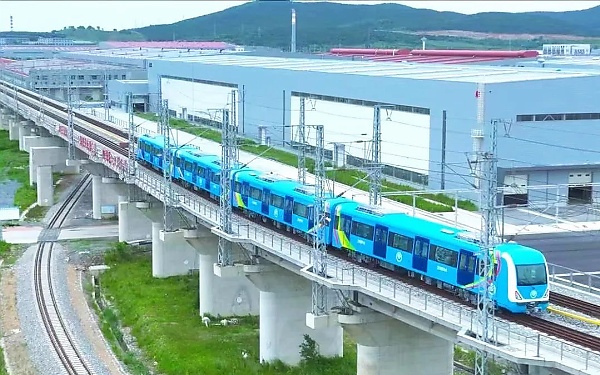
UPDATE: RAIL TRANSPORTATION PATRONAGE DROPS IN 2023 – NBS
According to data from the National Bureau of Statistics (NBS), the number of train passengers decreased by 32% in the fourth quarter of last year, indicating a significant loss of interest in the train transportation system.
The NBS’s report on “Rail Transportation Data (Q4 2023),” which Channels Television was able to obtain, showed that the number of people using trains decreased by 32.08 percent in comparison to the prior year, while passenger revenue also decreased by 2.64 percent in the same period.
However, the Bureau did not explain why fewer people nationwide were using rail transit.
According to NBS, 672,198 passengers used the rail system in Q4 2023, up from 1,337,108 in the same quarter in 2022. This is a growth rate of 49.73 percent.
Once more, the amount of cargo and goods moved in Q4 2023 was 119,286 metric tonnes, as opposed to 53,136 metric tonnes in Q4 2022.
Passenger revenue for the reference period totaled N1.1 billion, a 7.51 percent drop from the N1.15 billion collected in the corresponding quarter of the prior year.
In a similar vein, N423 million was collected in Q4 2023 from products and cargo delivered, an increase of almost 169% above N157 million received in Q4 2022.
Furthermore, the total amount of other receipts was N394 million, representing a growth of around 3% from the N382 million collected in Q4 2022 to Q4 2023.
In comparison to 2022, the amount of cargo and cargo income increased by almost 102% and 144%, respectively.
This comes after Lagos State Governor Babatunde Sanwo-Olu introduced the Red Line train in February.
Within the Lagos-Ibadan rail corridor, the Red Line is intended to be an essential metro link. It will share a right-of-way with the Lagos-Kano Standard Gauge Railway for a distance of 37 km.
The route’s significant stations are Agbado, Iju, Agege, Ikeja, Oshodi, Mushin, Yaba, and Oyingbo. It will originally run from Agbado, in Ogun State, to Oyingbo, in Lagos.
Its initial estimates pegged the cost at $135m under the Greater Lagos Urban Transportation Project, which will be managed by the Lagos Metropolitan Area Transport Authority (LAMATA).
